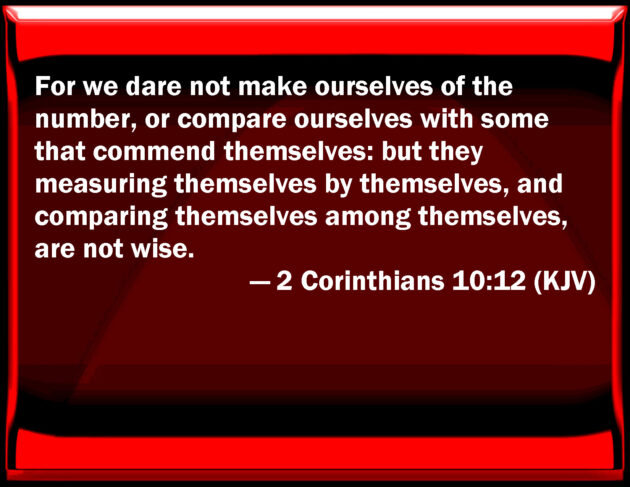The Pastor’s Piece
FCFI
February 12, 2023
Subjectivism and Objectivism in a culture of relative truth …

Digital communication has its advantages. Text messaging is easy and convenient. Convenient because you can choose to answer when it’s convenient for you to answer. Of course, anything can be read into any text message at any time. It’s difficult to show emotion and sarcasm in a text message and it is quite easy to unintentionally misrepresent yourself, which seems to happen to me fairly frequently. Of course, sometimes when you don’t feel like answering someone, it’s easiest to just ignore their text message.
Such was the case a while back. I received a text message from someone who was using me as a third party in an attempt to squeeze information from me that the first party wasn’t willing to reveal. I did not consider it my place to share that confidential information so I ignored her request all together and chose not to answer. A couple days later, the following reply came in response to my no-reply … It was a screen shot that said: “What is the psychology behind not responding to a text message? Why do you feel so bad when someone doesn’t respond to your texts?” And then they answered their own question: “It’s because when someone doesn’t respond, that person makes you feel invalidated, unimportant, and excluded.”
Seriously? I did all that simply by doing nothing? We live in a very tender society. I’d like someone to do a study on “What is the psychology behind the psychology of not responding to a text message.” Which leads me to the thoughts that follow.
Subjectivism by definition according to dictionary.com: “Noun: The doctrine that all knowledge is limited to experiences by the self, and that transcendent knowledge is impossible.” A subjective person is easily influenced by personal feelings, interpretations, or prejudice.
Objectivism by definition according to dictionary.com: “Noun: The tendency … to deal with things external to the mind rather than with thoughts or feelings.” An objective person is not easily influenced by personal feelings, interpretations, or prejudice.
We are in the middle of a culture war. Values that have stood the test of time for centuries are being challenged and changed, and confusion reigns. If one does not agree with the latest cultural trends, that person is often ridiculed, rejected, and attacked for his personal views. As Christians, do we engage in the culture war, or do we retreat? We cannot surrender. It seems that the Church in general is in retreat mode. We see it compromising and buckling to the spirit of the age, and many wonder how this could have happened so quickly. But long before all the external compromises that we see happening took place, there was an internal compromise that happened first. And that compromise made it possible for Christians simply to bypass the authority of the Word of God and make their own determination of whatever amount of truthfulness they could tolerate. Christians do this all the time. They do it when it comes to sexual purity. They do it when it comes to holy living. They do it when it comes to making wise, Bible-based choices. They do it when it comes to entertainment and socializing. They do it when they buy into the secular movement of the day – whatever that may be.
In the biblical framework, truth is that which the Scriptures declare or that which lines up with what the Scriptures declare. This kind of truth has the essential characteristic of not caring at all about your feelings. Two and two equal four, regardless of whether this might be inconvenient to your emotional state.
We live in what is called a postmodern society. The postmodernist believes that human identity is constructed by the culture and is specifically influenced by the three key cultural features of gender, social class, and race. In the postmodern framework – which many Christians have adopted, including seemingly conservative Christians – what really determines truth for them is how they feel about it. We are a generation that has come unstuck from the very concept of truth. We do not know how truth needs to be established, researched, acknowledged, or confirmed. This is not wise.
Without something solid, firm, and unchanging on which to establish a foundation for our culture and our very lives, then we have no way to differentiate between what is good and what is evil; what is right and what is wrong; what is truth and what is a lie. How can we, if truth varies from person to person and changes by the whim of the one defining it?

“For we dare not make ourselves of the number, or compare ourselves with some that commend themselves: but they measuring themselves by themselves, and comparing themselves among themselves, are not wise,” (2 Cor. 10:12).

God’s Word is the ultimate source for truth, life, and happiness. “The grass withers and the flowers fall, but the word of our God endures forever,” (Isaiah 40:8).
(Kevin Cernek is Pastor of Martintown Community Church in Martintown, Wisconsin)
